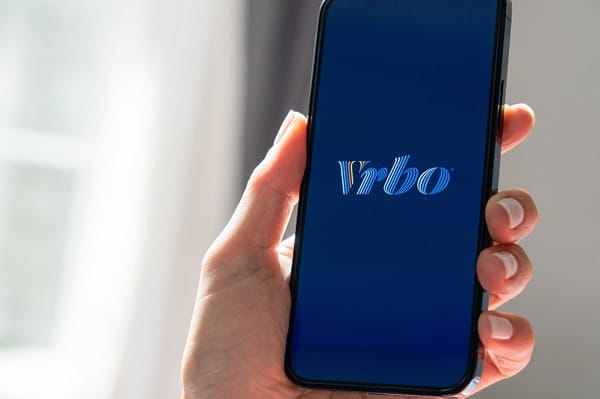How to Start a Vacation Rental Business: A Complete Manual

Starting a vacation rental business is an exciting prospect with benefits like more income and flexible working hours. With this breakdown of what you need about the business model and guest expectations, you’ll be set to achieve vacation rental success.
Platforms like Airbnb, Vrbo, and Booking.com are making it easier than ever to have a thriving vacation rental business. Whether you’re interested in starting a vacation rental business as your new full-time career or your goal is merely running it as a profitable side hustle, you still need to do adequate research and put your own systems in place.
It’s not as simple as listing a property and generating repeat bookings immediately. From choosing the right location and setting competitive prices to navigating regulations and going beyond what that guests expect, here’s what you need to know to get your vacation rental business off the ground.
What Is a Vacation Rental Business?
A vacation rental business (also called a short-term rental business) is a business that offers short-term rental property for hire. This can either be for a short-term vacation or a longer stay.
With this business model, you can have only one investment property or multiple properties in your portfolio. That said, starting a vacation rental business is also possible without any private properties behind your name. You can also sublet properties, if the property owner allows it in the lease agreement (referred to as rental arbitrage).
A vacation rental business also offers great flexibility. You have the option of running it on a full-time basis or taking on the role of a part-time host who runs their business as a side hustle for a second income.
What Do I Need to Start a Vacation Rental Business?
All legal documentation and licenses
Before planning your vacation rental business, consider the vacation rental industry regulations. Then, also consider the laws that govern short-term renting in your city as these laws vary by state and city.
First, find out if short-term rentals are legal in your city. If they are, your next step is to research what zoning laws apply to your vacation rental property’s location. Once you have the green light to operate, you will need to apply for the relevant licensing to practice as a business. This could include a general business license as well as a short-term rental license. You will also need to find out what Airbnb taxes you will need to pay for running your vacation rental business.
If you’re unsure about what licenses you need or where to get them, you can work with a lawyer who specializes in vacation rental property.
A detailed business plan
Like with any business venture, you’ll need to draw up a vacation rental business plan first. A well-crafted business plan is the sail of your ship. It can help you identify the strengths, shortcomings, and risks of your business and the vacation rental industry.
Start by identifying the goals of your business in terms of scale and revenue. What targets do you want to hit, and by when?
Remember to be realistic with setting dates. A thriving business takes time to build.
To help you with this step, list your business assets to assess your current limits and future potential.
Next, identify the unique selling points (USPs) of your business. Think about what your rental property has that your competitors are lacking.
Other information you should include are:
- A financial strategy
- The management structure
- An operations plan
- A marketing strategy
- A customer (guest) analysis
A property management strategy
You will need to consider how you are going to manage bookings and oversee your rental properties. A good idea is to jot down questions related to managing properties and answer them, one by one. Using this exercise, your property management strategy will begin to take shape. Examples of questions to ask include:
- How much time can you give to property management?
- How will you handle messages and requests sent outside of your working hours?
- Will you manage the properties yourself or hire a property management team?
- What tools will you use for effective property management?
Who will replenish guest supplies?
A pricing strategy
A detailed business plan won’t go far without a thorough pricing strategy. You should estimate your maximum revenue and compare it against your monthly expenses like management fees, laundry services, and other cleaning fees.
In addition to costs, remember to take into account seasonality, competition, and market trends. From there, you can determine your profitability and set an accurate rental rates.
As market demand can fluctuate significantly in the vacation rental industry (even when you’re located in tourist destinations), it’s recommended that you implement dynamic pricing. With a dynamic pricing tool, you can automatically adjust your nightly rate real-time data like upcoming local attractions or summer that will likely increase market demand.
Other strategies to help you maintain high occupancy include:
- Offering seasonal specials and weekday discounts
- Switching to long-term rentals when it’s not your peak season
- Listing on multiple platforms (and using a channel manager to avoid double-bookings)
Where Should I Base My Airbnb Business?
You should aim to base your vacation rental property in areas that receive moderate to high tourist traffic. That said, thanks to technology, vacation rental owners can base themselves anywhere in the world with remote management becoming very popular in recent years. In fact, many guests prefer to opt for vacation rentals with remote, contactless services.
Then, when guests check out, you can use a third-party cleaning service to get your vacation rentals guest-ready again. For the other in-person tasks involved in running a successful vacation rental business like repairs, you can hire a property management company.
How to Make Money Running a Short-term Rental Business?
Make your rental stand out
Keep your target guest in mind
Remember that you are trying to attract a certain type of guest. Don’t try to catch the attention of every guest out there. If you do that, you may end up attracting no guests at all.
Decide on who your vacation rental property best caters to (e.g. business travelers, families, backpackers, etc.) and aim to attract guests from these segments to book with you. You can do this through styling and decor, amenities on offer, and special deals.
Invest in a solid design and durable furniture
Your Airbnb furniture should have a consistent theme and style that’s easy to identify. Try to place a signature piece in each room (and private outdoor areas) that will act as a focal point and give a sense of balance.
Feel free to play with colors, but don’t go overboard and create unpleasant clashes. If you’re not feeling confident, you can work with a professional interior designer who can advise you.
Provide unique amenities on top of the basics
On top of the basic amenities, you should aim to provide something special that helps your property stand out from others. Perhaps your rental offers stunning vistas, private outdoor areas, or a pool or hot tub for relaxing in? Or maybe its location and proximity to other local attractions is a big selling point? Whatever it may be, make sure you highlight it in your Airbnb listing title and description.
Create a perfect listing on booking sites
Your rental listing is what’s going to attract potential guests to your rental. So, invest some time in making it perfect.
Your property description should be informative, but also enticing. Don’t just list what your rental offers but describe the premium service and kind of experience guests can expect. Include a title that either mentions a unique amenity or a special offer to encourage guests to click and find out more.
Advertise your rentals
To remain competitive, you should list your rental properties on the top rental sites which include Airbnb, Vrbo, and Booking.com. You can also create listings on alternative platforms like Expedia and TripAdvisor. This allows you to reach as many people as possible, increasing your chances of landing more bookings.
You should also market your rental on social media platforms for maximum exposure. Visual platforms like Instagram and Pinterest are best for showcasing your rental. Another marketing plan includes partnering with local businesses to offer deals and promotions.
Work on your Airbnb ranking
One of the most effective ways to encourage excellent occupancy rates and secure more bookings is to ensure your listing is shown on the first page of a listing site. Guests want quick and convenient solutions and are more likely to book listings higher in the search results.
You can boost your Airbnb ranking by:
- Keeping a speedy response rate
- Choosing a flexible cancellation policy
- Obtaining good reviews from guests
- Keeping your listing up to date
What Is the Best Way to Run Your Vacation Rental Business?
There are a variety of options vacation rental business owners can use for managing properties and growing their business. The following are the three most common approaches:
1. Self-management
If you have the time and know-how, managing your own business can be a rewarding experience. One big plus is that you can save on the fees you would otherwise be paying to a property manager or vacation rental management business service.
Self-management also gives you greater control over how your daily operations are managed.
However, it can become time-consuming, especially when you manage multiple properties.
2. Hiring a property manager or a property management company
Hiring a property manager or a property management company takes the pressure off handling the business yourself. If you already work another job or don’t have the expertise to manage your rentals, then hiring external help is the optimal solution. Although you’ll be paying a property management fee, you can rest assured that your properties will be in expert hands.
3. Using vacation rental software
A third option is to manage your rental business using vacation rental software. This is the perfect option for business professionals with limited time who prefer a more hands-on approach.
Vacation rental software, such as iGMS, uses automation functionality, allowing you to focus on growth and scaling.
Also Asked
How profitable is a vacation rental?
Owning a vacation rental can be very profitable—especially in popular destinations where short term vacation rentals consistently attract high occupancy. With the right tools and pricing strategy, you can run a vacation rental property efficiently and generate strong returns.
How much money do you need to start a rental business?
Starting your own vacation rental typically requires $5,000 to $50,000 or more, depending on whether you buy, rent (via rental arbitrage), or leverage existing vacation rental options. Costs include furnishings, licensing, platform fees, and initial marketing.
Is owning a vacation rental worth it?
Yes, if managed properly. Many hosts find that short-term vacation rentals offer flexibility, passive income, and property appreciation—especially when they treat it like a business and use automation tools to manage their vacation rental property efficiently.
What is the 7-day rule for vacation rental?
The IRS 7-day rule impacts how your vacation rental is taxed. If you rent for fewer than 15 days annually, income is tax-free. But if you own a vacation rental and rent it for more than 14 days while also using it personally, it may be classified as a personal residence, which limits certain tax deductions.
About the Author
Phoebe Gunning is a content writer in the Marketing Department at iGMS. She is passionate about the vacation rental industry, notably helping hosts make the most out of their vacation rental businesses. Some of her hobbies include reading, traveling and drinking a good cup of coffee.




![Complete Vacation Rental Email Marketing for Hosts [+ Top Tools]](/content/images/size/w600/2026/01/email-marketing.jpg)
